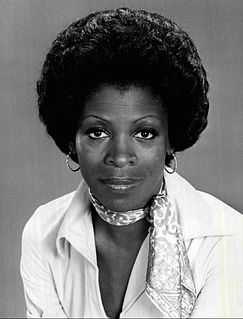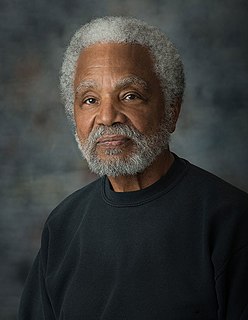A Quote by Roxie Roker
I was very much a part of the civil rights era, so, of course, my fantasy was to marry some outstanding black gentleman, a leader - someone like Martin Luther King who was doing something for black people.
Related Quotes
We [black people] don't respect our elders. Besides artists, we don't respect Frederick Douglass. We don't respect Martin Luther King. You look at every Martin Luther King Boulevard out here, and it's a crack block. That's not because of white people. That's because of black leadership. We just have that problem, and it's something that I am going to spend the rest of my life trying to conquer.
If the Rev. Martin Luther King Jr.'s civil rights movement made demands that altered the course of American lives and backed up those demands with the willingness to give up your life in service of your civil rights, with Black Lives Matter, a more internalized change is being asked for: recognition.
Martin Luther King really was a safety valve for white people. Any time it appeared that the black community was on the verge of really doing what we ought to do based on having been attacked, they put Martin Luther King on television. He was always saying, "We must use nonviolence. We must overcome hate with love." White people loved that. That's why they gave him a Nobel Prize. But when Martin Luther King started condemning the Vietnam War, that's when white people turned against him.
There never has been a desire on the part of the government that the struggle of Black people in America should be linked to the struggle of our people in every part of the earth. Every leader that was international in scope and in reach became the target of the government - Paul Robeson, Marcus Garvey, W.E.B. DuBois, Martin Luther King Jr., Malcolm X, Kwame Ture and the Honorable Elijah Muhammad. Any Black leader who would try to connect us to our brothers and sisters in Africa and Asia were seen as a threat and became a target.
The goal of Martin Luther King is to get the Negroes to forgive the people the people who have brutalized them for four hundred years, by lulling them to sleep and making them forget what those whites have done to them, but the masses of black people today don't go for what Martin Luther King is putting down.
Remember, we're talking [in The Black Power Mixtape] about 1967, the year before [Martin Luther] King's assassination. We're talking about the emergence of black power, which is a discussion King mentioned in his last book, Where Do We Go from Here: Chaos or Community? We're talking about the meaning of black power and the possibility that it alienated our supporters, both white and black.
10 years ago the black man knew what his condition was. And today, because of the world revolution that's taking place all over this earth, the black man would be fighting for what he knows is his by right, but the movement on the part of [Martin Luther] King and the others had done nothing but slow down the militancy that is inherent in the nature of the black man.


































